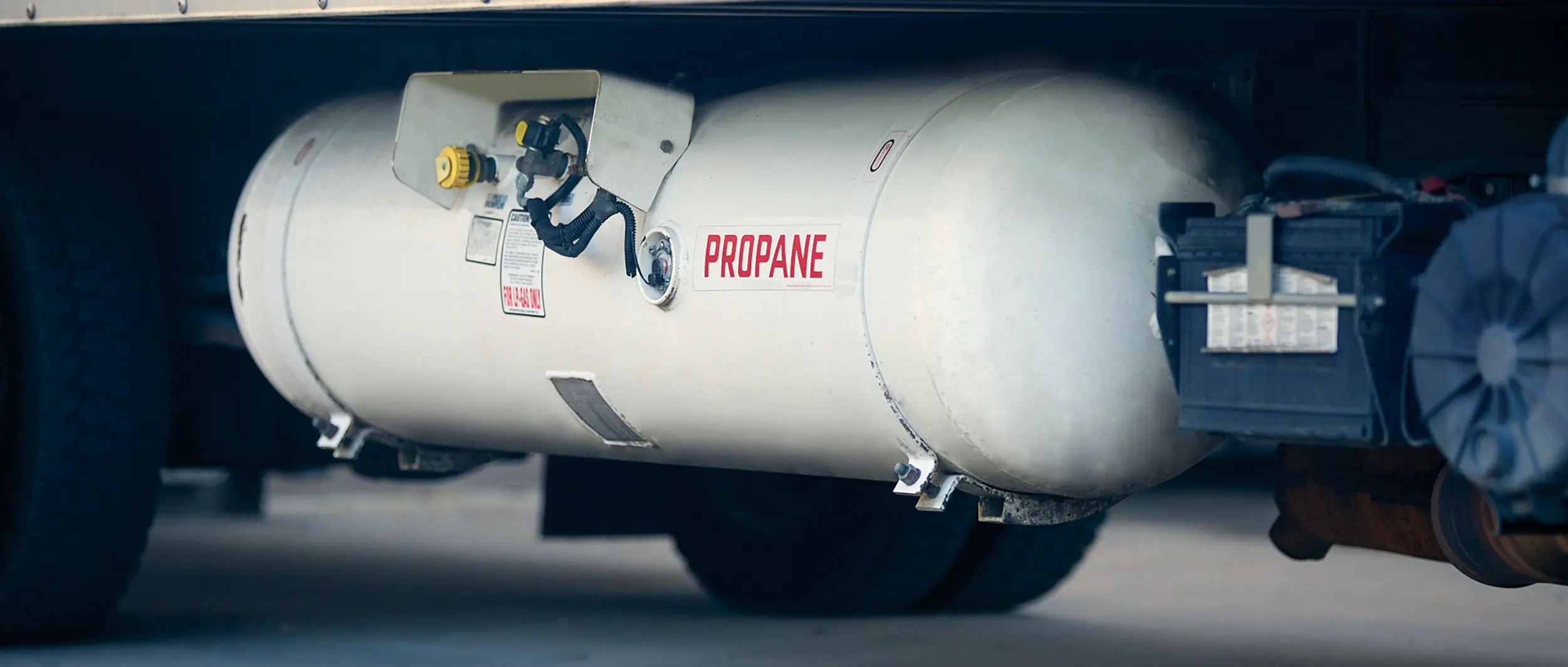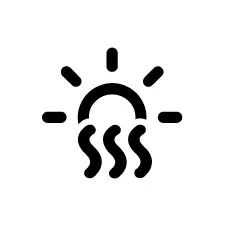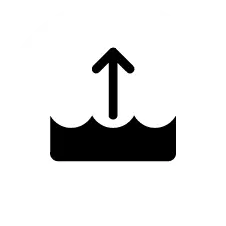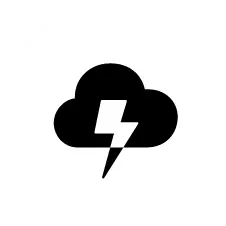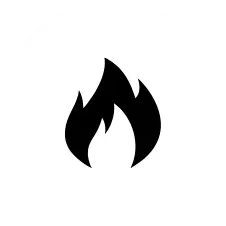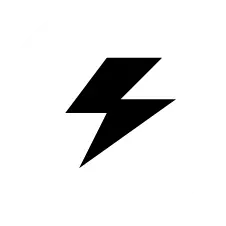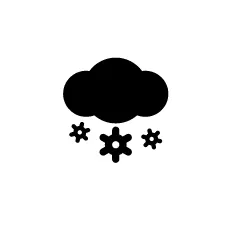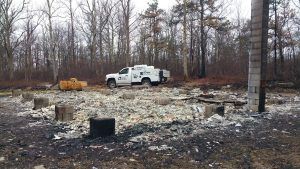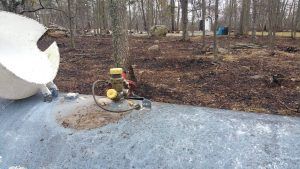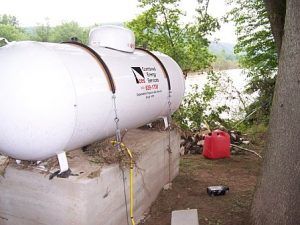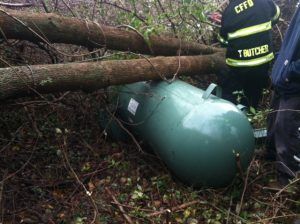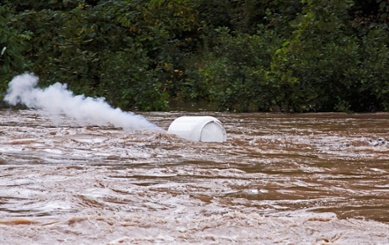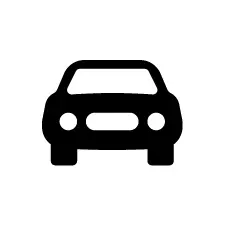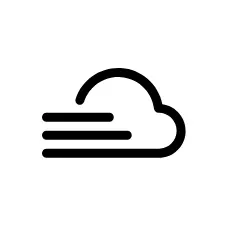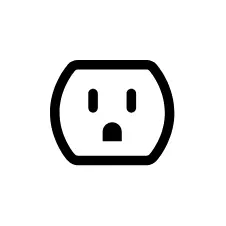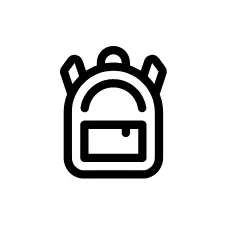Safety Tips
General Tips
To readily recognize a leak, know what propane smells like. Propane suppliers have pamphlets available with a scratch-and-sniff spot so that your entire family can recognize the smell. Propane leak detectors, similar to carbon monoxide detectors, are available online or at your local plumbing supply or hardware stores. View the annual Duty To Know – Propane brochure.
IMPORTANT: If you smell a leak, immediately evacuate everyone from the building and call your local propane supplier or the fire department from your neighbor’s phone. DO NOT remain in the building, use the telephone or light switches or try to determine the source of the leak by yourself.
Heating Appliances
All furnaces can collect lint and dirt and should be cleaned regularly. Contact your local propane supplier for information on proper cleaning and follow the manufacturer’s instructions.
Water Heaters
Drain your tank periodically (until water runs clean – usually 2-3 gallons) to get rid of sediment buildup on the bottom of the tank.
Ranges
Have your unit serviced if the burner flame is not blue. The blue flame indicates complete combustion. A yellow flame mean air inlets are clogged or burners need adjustments. Contact your propane supplier’s service department immediately. Do not cover the oven bottom with foil – it can restrict air circulation.
Important Notes to Keep in Mind:
- Be aware of the location of gas service lines – this is important when work needs to be performed
- Water can damage the internal safety mechanism in the gas controls of an appliance. If you suspect that your appliance gas controls may have gotten wet (because of flooding, for example), have a trained technician replace them immediately.
Propane Safety Tips for Emergency Weather Situations
By taking some simple propane-related safety precautions and discussing them with your family, you can reduce the potential for property loss, personal injury and even death.
There are several precautionary measures you can take to be prepared in case of emergencies:
- Ensure tank is not in a location prone to flooding and high water such as dry creek beds.
- A good rule of thumb is to keep a clear 10′ radius around tanks.
- Cut grass / weeds around the tank exposing bare ground; use weed / grass killer after cutting vegetation and spread base material or gravel around to prevent growth.
- Never store or place cylinders indoors or in an enclosed area such as a basement, garage or shed.
- Secure the tank with anchoring cables on a solid foundation if needed.
- Be sure to have a tank dome and properly secure it closed to prevent damage to the fittings.
- Know how and where to shut off propane supply and appliances. For more information, contact CES.
- Have your propane tank filled when rainy weather is on the way. The tank will not float if the water level is below the propane level.
- In the event of flooding, turn off the gas tank’s valves before leaving the home if possible.
Propane Safety Tips for Grilling
- Read and follow all the grill manufacturer’s instructions before turning on and lighting the grill. Keep the top open when lighting a propane grill, and don’t close it until you are sure grill is lit.
- Start with a hot grill. When you place meat on the grill, it should sizzle. Searing meat locks in the juices and flavor and helps keep meat from sticking to the grill. Turn the grill on as high as possible, then place the meat on the grate, close the lid, and sear one side for 3 to 4 minutes. Then, reduce heat to medium for the remainder of the cooking time.
- Most grilling is done with direct heat, or cooking items quickly at high temperatures. Place burgers, steaks, or your favorite tender beef cut directly over the grill burners. Use indirect heat when cooking less tender cuts of beef, such as brisket. The indirect low-and-slow method cooks meat at a lower temperature for a longer time. Simply turn off one set of burners and place beef on that side; radiant heat from the hot side will cook items slowly.
- Turn off the burner control and close the cylinder valve. When a grill is not in use for extended periods of time, cover disconnected hose-end fittings with plastic bags or protective caps to keep them clean.
- Properly transport and store gas cylinders. When refilling or replacing a propane cylinder, transport in a secure, upright (vertical) position in a well-ventilated area in your vehicle, and take it home immediately. Always use or store cylinders in a secure and upright position outdoors (not in a garage or shed).
The Do’s and Don’ts of Grilling Safety
DO
Do follow the grill manufacturer’s instruction and keep written materials handy.
Do keep the top of the grill open until you are sure it is lit.
Do cover disconnected hose-end fittings with plastic bags or protective caps to keep a grill clean when it is not in use.
Do store propane cylinders outdoors in an upright (vertical) position.
Do: If you smell gas, safely turn off the cylinder valve, turning it to the right (clockwise). Immediately leave the area and dial 911 or call your local fire department. Before using the grill again, have a qualified service technician inspect your cylinder.
DON’T
Don’t smoke while handling a propane cylinder.
Don’t use matches or lighters to check for propane leaks.
Don’t pour an accelerant such as lighter fluid or gasoline on the grill.
Don’t allow children to tamper with the cylinder or grill.
Don’t allow children to tamper with the cylinder or grill.
Don’t try to be a grill repairman. If you are having grill or propane cylinder problems, see a qualified service tech
Propane Safety Tips Small Cylinders
What should I do if I smell gas?
- Immediately put out all smoking materials and other open flames.
- If you are able to, safely turn off the cylinder valve. To close the valve, turn it to the right (clockwise).
- Immediately leave the area and call 911 or your local fire department.
- Before you restart the appliance, have a qualified service technician inspect your cylinder and appliance.
Some people may have difficulty smelling propane due to their age (older people may have a less sensitive sense of smell); a medical condition; or the effects of medication, alcohol, tobacco, or drugs. Consider purchasing a propane gas detector as an additional measure of security. Odor fade is an unintentional reduction in the concentration of the odor of propane, making it more difficult to smell. Although rare, this can be caused by the presence of air, water, or rust in the cylinder. New and reconditioned small cylinders that sit too long before being filled are prone to internal rust when moisture and air get inside.
How should I store small cylinders?
- NEVER store or place a propane cylinder indoors or in an enclosed area such as a basement, garage, shed, or tent.
- NEVER store or place a propane cylinder in an area of excessive heat (120 degrees or higher) or near a stove, fireplace, or other heat source. The heat builds up pressure inside the cylinder, which may cause the pressure relief valve to release propane. Flash fires or explosions can result from exposing cylinders to heat.
- NEVER store or place a spare cylinder under or near a barbecue grill.
- DO NOT smoke or have any ignition sources such as flames or spark-producing electrical tools in the area while handling or transporting cylinders.
How should I transport small cylinders?
- ALWAYS transport and store a cylinder in a secure and upright position so it will not fall, shift, or roll.
- ALWAYS close the cylinder valve and, if required, seal with a plug, even if the cylinder is empty. Ask your propane retailer if a plug is required.
- NEVER keep a filled cylinder inside a hot vehicle or transport it inside a closed trunk.
- ALWAYS place the cylinder in a well-ventilated area of the vehicle.
- ALWAYS proceed directly to your destination and immediately remove the cylinder from your vehicle.
- The law places limits on the number of cylinders and the amount of propane that can be transported in closed-bodied vehicles such as passenger cars and vans. Ask your propane retailer for more information on state and local codes that apply to you.
What should I do if I have a problem with my cylinders or outdoor appliances?
DO NOT UNDER ANY CIRCUMSTANCES TRY TO MODIFY OR REPAIR VALVES, REGULATORS, OR OTHER CYLINDER OR APPLIANCE PARTS. Propane cylinders incorporate special components such as valves, connectors, and other parts to keep them safe for use with grills and other propane appliances. Damage to any component can cause a gas leak.
DON’T RISK IT! Call your propane retailer or a qualified service technician for assistance.
How to test for propane leaks
It is important to inspect your cylinder and outdoor gas appliances for leaks. Do this before using them for the first time each season, as well as on a regular basis. This can be accomplished with a simple “bubble-test”.
- Apply leak detector solution or thick soapy water to the connection(s) between the cylinder valve and the regulator outlet. These connections are marked with an “x” on the diagram below.
- Slowly open the cylinder valve and watch for bubbles.
- If bubbles appear, close the cylinder valve, tighten the connection, and repeat the process. If bubbles still appear, call your propane retailer immediately.
DON’T RISK IT! Call your propane retailer or a qualified service technician for assistance.
What is an overfill prevention device (opd)?
MAKE SURE YOUR CYLINDER IS EQUIPPED WITH AN OVERFILL PREVENTION DEVICE (OPD). An OPD is a safety feature that helps prevent small propane cylinders from being overfilled. An overfilled cylinder doesn’t have enough space left if the liquid expands when exposed to warmer temperatures. This can cause an increase in cylinder pressure and create potentially hazardous conditions. Most cylinders with OPDs have special triangular handwheels with the letters “OPD” on them. In many states, cylinders without OPDs cannot be refilled. If you are uncertain as to whether your cylinder has an OPD valve on it, ask your propane retailer.DON’T RISK IT! Call your propane retailer or a qualified service technician for assistance.
What should I do with my old or damaged cylinders?
NEVER use a damaged cylinder or a cylinder that has been in a fire. All cylinders must be inspected before they are refilled. The law requires periodic inspection of cylinders, and it is against the law to refill out-of-date cylinders. The last inspection date is stamped on the cylinder.
How should I dispose of cylinders?
NEVER dispose of your propane cylinder by throwing it in the trash. Check to see if there are municipal programs for collection in your area, or contact your propane retailer for guidance on disposal of the cylinder.
Safety Tips for Dry Ice
Dry ice is frozen carbon dioxide, a normal part of our earth’s atmosphere. It’s useful for freezing, and keeping things frozen because of its cold temperature. -109.3 F or -78.5 C. It’s widely used because it’s simple to freeze and easy to handle using insulated gloves.
Perfect for:

